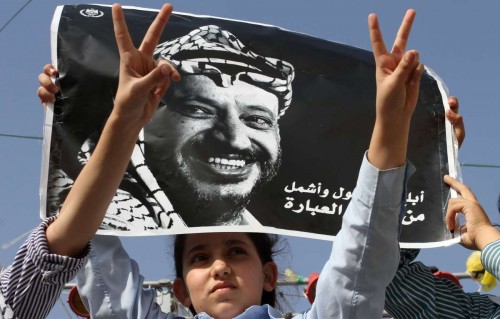
By Saud Abu Ramadan
The decision to suspend a ceremony in Gaza commemorating the 10th death anniversary of Palestinian leader Yasser Arafat has reopened old wounds between the Fatah and Hamas movements, threatening the reconciliation agreement they reached last April.
The Central Committee of Fatah, headed by Mahmoud Abbas, cancelled a ceremony due to be held Tuesday following a notification from the Gaza interior ministry saying that it cannot guarantee security.
The decision followed a series of explosions near the cars and homes of a dozen Fatah leaders in Gaza Friday, which has raised the spectre of a new inter-Palestinian armed confrontation.
Fatah officials believe that the aim of the attacks was to sabotage the remembrance ceremony which hundreds of thousands of Gazans were expected to attend.
The cancellation threatens the long-awaited reconciliation between the two Palestinian factions.
Zakaria Agha, member of Fatah’s Central Committee, complained Sunday that Hamas had warned them it could not guarantee security at the gathering.
Agha said this would have a negative impact on the national reconciliation process.
The ceremony honouring Arafat was going to be the first in Gaza since 2007, when Hamas took up arms and seized power in the Strip expelling the Fatah movement. It was also expected to symbolise a new era in relations between the two sides.
The two main Palestinian movements reached an agreement last June to end their rivalry and formed a transitional government for both Gaza and the West Bank.
But the conflict last summer in Gaza, which came under attack from Israel, and a dispute over who should pay officials employed by Hamas delayed the reconciliation process and a call for general elections.
Azam al Ahmad, chief Al Fatah negotiator in the reconciliation talks, said Hamas was “causing tension” in an artificial manner and was putting obstacles in the way of the process aimed at ending internal strife.
However, one of Hamas’s main leaders, Musa Abu Marzuq, has denied the charge and said his men have nothing to do with the latest attacks.